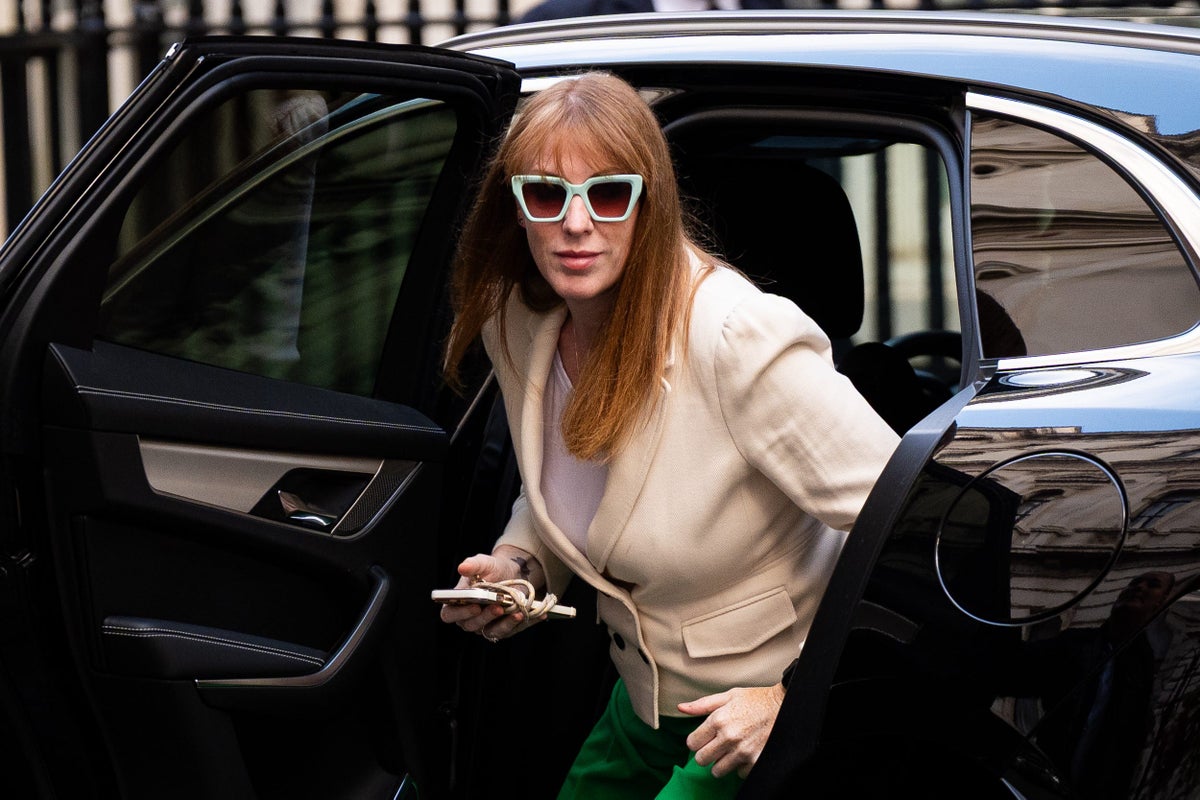
If you asked anyone in Labour circles before Wednesday who was Sir Keir Starmer’s most likely successor, the chances are they would have said Angela Rayner.
The deputy prime minister is a cabinet favourite with members and a darling of Labour’s trade union backers.
But Ms Rayner’s political future is hanging in the balance after she admitted failing to pay £40,000 in tax when purchasing a property.
Her career now depends on the outcome of an ethics probe into her tax dealings, which could conclude by the end of the week.
But who is Ms Rayner, and how did she get to where she is?
Her background
Angela Rayner is often touted as a prime example of Labour values in practice – a working class girl with a complex family background who found her feet with help from the Blair government’s Sure Start centres.
She was born in Stockport, in Greater Manchester, in 1980, and raised on a council estate by her mother Lynn, who struggled with depression and could not read or write. From a young age, Rayner acted as a carer for her mother, at times having to bathe and feed her. Her father was nearly always out of work.
She became pregnant at 16 and has spoken about being told she would “never amount to anything” after leaving school with no qualifications. After studying part-time for a vocational qualification, she took a job as a care worker for the local council, then a trade union representative and, before long, was Unison’s most senior official in the region. “I was mouthy and I would take no messing from management,” she later recalled.
Her career and politics
It was a move that set her on the path to a political career, with Ms Rayner being selected to stand for the safe Labour seat of Ashton-under-Lyne in the 2015 general election, which she won.
Openly ambitious, she rose to prominence in Jeremy Corbyn’s shadow cabinet, covering the pensions, education and women and equalities briefs and earning the affection of the Left of the Labour Party.
When Mr Corbyn quit in the wake of 2019’s disastrous general election defeat, Ms Rayner was elected deputy leader under Sir Keir Starmer. She claimed she was “not a Corbynite” and was seen as a bridge between Sir Keir and Labour’s left-wing members and MPs.
Despite her distancing from the left, she has had a rocky relationship with Sir Keir and his top team, with the Labour leader in 2020 seeking to sideline her before a prolonged standoff saw her emerge with a significant promotion.
As Labour’s fortunes picked up, so relations between them began to improve, her brash outspokenness a useful antidote to her more buttoned-up leader – “I overshare … but I’ve always said Keir undershares”, she joked.
She has served since last summer’s general election as deputy prime minister and shadow housing secretary and overseen Labour’s flagship workers’ rights package and the party’s pledge to build 1.5 million new homes this parliament.
Housing controversies
But the deputy PM has found herself embroiled in a series of controversies as a frontline politician.
Before the general election, Ms Rayner was the subject of an investigation by HMRC into complaints she may have broken electoral law and dodged capital gains tax and council tax over the 2015 sale of her council house in Stockport, and whether she had provided false information about her main address during the 2010s.
She was eventually cleared, with HMRC finding she owed no capital gains tax and saying it would take no further action.
It is property that has landed her career on the line yet again, with the focus this time on her purchase of an £800,000 flat in Hove.
Ms Rayner on Wednesday conceded she did not pay the right stamp duty on the purchase, having initially been advised the property counted as her primary home. She is now liable for more than £40,000 in stamp duty payments after subsequently being advised a house in Ashton is in fact her primary residence.
The precise wording of the findings of a probe by ethics advisor Sir Laurie Magnus will determine whether she can cling on as deputy PM and housing secretary.
Other controversies
Ms Rayner has faced a series of other controversies through her political career, with supporters of the firebrand politician accusing many of her critics of classism and sexism.
A 2022 Mail on Sunday article repeated a claim by anonymous Tory MPs that Ms Rayner tried to knock Boris Johnson “off his stride” during Prime Minister’s Questions by “crossing and uncrossing her legs” in a scene supposedly reminiscent of the film Basic Instinct.
Ms Rayner also faced criticism after a video emerged of her dancing in a DJ booth in Ibiza while on holiday, defending herself by saying: “I’m working class, I like a dance.”
The deputy PM has long been in the crossheirs of Tory MPs after she described Conservatives as “scum” at the Labour’s annual conference in 2021.
She later apologised “unreservedly” for the remarks, but has never lived them down among Conservative opponents in the Commons.
Ms Rayner said she had reflected on the tone of political debate in the wake of the murder of Tory MP Sir David Amess, and has spoken out about threats against her own life having a “devastating effect” on her.
